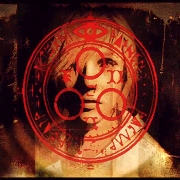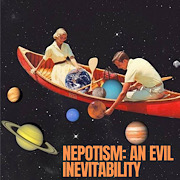|
Dreddout posted:Mike Duncan claims there's no evidence for this on his podcast. In fact he adds that the allies wanted the reds to win the civil war. man I'd stopped following Duncan since like... end 2019 but this is hilarious
|
|
|
|

|
| # ? May 23, 2024 12:07 |
|
Dreddout posted:Mike Duncan claims there's no evidence for this on his podcast. In fact he adds that the allies wanted the reds to win the civil war. lol jfc. I'd listened to the English civil war series and part of the French revolution one, guess it was good that I fell off
|
|
|
|
Dreddout posted:Mike Duncan claims there's no evidence for this on his podcast. In fact he adds that the allies wanted the reds to win the civil war. wtf units like the czech legion are very well documented and actual survivors of the campaign would talk about having been in that campaign what's his angle? that there was no concerted intervention?
|
|
|
|
Dreddout posted:Mike Duncan claims there's no evidence for this on his podcast. In fact he adds that the allies wanted the reds to win the civil war.  ????????
|
|
|
|
A spicier take would be that the Russian Civil War = Vietnam's various conflicts between 1941 and 1975, with the foreign powers involved and endlessly trying to find a non-communist alternative. In this scenario I guess the Japanese are the Germans and the Binh Xuyen/Hoa Hao are the fringe elements like Makhno.
|
|
|
|
Where in which episode does Mike Duncan claim that? Not distrusting you but such a slip i want to hear for myself.
|
|
|
|
I relistened and didn't catch it. What it where he said "while it is possible to overstate the allied intervention in the civil war, it is also possible to understate it too?" Because that is a reach.
|
|
|
|
If anyone started revolutions but stopped early, there is a marked change starting with the Haitian chapter.
|
|
|
|
V. Illych L. posted:wtf Oh no he acknowledges all that he just frames it in the most credulous way possible. To paraphrase, "the allies intervened in Russia to secure the regions stability.(citation: Woodrow Wilson) There's no evidence for a conspiracy to overthrow the Bolsheviks. In fact the allies wanted the reds to win the civil war. Better the modern socialists than the reactionary whites." That's more or less his explanation of the initial invasion. In general Mike interprets the Bolsheviks actions and explanations uncharitably relative to radicals in earlier seasons. While giving the benefit of the doubt to Kornilov (really), kolchak, and post-exile Trotsky.
|
|
|
|
Stop paraphrasing.
|
|
|
|
Wasn't he talking about the Russian peasants in that context that the Bolsheviks would win and uphold the land reforms while the whites would not
|
|
|
|
exmachina posted:If anyone started revolutions but stopped early, there is a marked change starting with the Haitian chapter. In what way? Teriyaki Hairpiece posted:Stop paraphrasing. Yeah we're going to need some quotes now.
|
|
|
|
Orange Devil posted:In what way? the english revolution is approached from a very academic perspective, with very minimal (relative to the subject matter) politicization. the american revolution he is waaaaaaay too close to and it shows and is probably the weakest; i would personally observe that he starts kind of struggling balancing writing these niceties about the founding fathers and the horrific poo poo they did - there's not enough in there about slavery at all for example. then he did Haiti and in a lot of ways Haiti kind of felt like him trying to resolve that tension - here is a genuine social revolution, rather than the liberal revolutions he'd covered previously. here is an unambiguous moral atrocity addressed by violent direct action, here is the slaves rising up and killing their masters. and as he told that story i would say he seemed to be increasingly aware that the people he'd covered previously, those high minded liberal revolutionaries, are the villains here - quite literally, sometimes the exact same people. here's the international order doing everything in it's vast power to put that moral atrocity right back where it was, thank you very much. his sympathies shift, he starts presenting certain perspectives much much more critically and also generally much more comfortable with violent revolution as rightous, which is kind of atypical from most liberal historians, thus the gag that the secret narrative of Revolutions is listening to mike duncan slowly and accidentally radicalise himself. also, the Haiti run is genuinely excellent content, iirc it won awards and it deserved to. you can tell in parts he seems genuinely incensed by the things he's reading and it comes out. but with that said he's another in an incredibly long line of liberals who had their brains severely broken by 2015-present and it got much, much worse after capital riots. he was tweeting about how it was a historic insurrection and the death of the republic etc etc all that poo poo. i stopped listening because pandemic killed my public transport times, but i would still without hesitation recommend the good seasons. idk if russia is those.
|
|
|
|
I had to drop Russia around the time WWI kicked off because I kept getting all the names and orgs mixed up and forgot which episode I was on, but up to that point it seemed pretty okay. He might have spent too long on the non-russian parts of the prologue, which are quite a slog to listen through, but I guess it's necessary background info. The last I listened to fully was the one on the Mexican revolution and it was pretty solid, on par with Haiti imo.
|
|
|
|
Also he tweeted once that he was radicalised by the research he did for the Haitian revolution. I don't believe him, he is still pretty liberal, but much further left than before.
|
|
|
|
Is there a term for when something drives you mildly leftwards? Scooted over?
|
|
|
|
Orange Devil posted:In what way? Nah to lazy go listen yourself Citations: 10:84 the end of the world. You can scrub through the ep for Mike's explanation for allied intervention. 10:70 the Kornilov affair. self explanatory Post exile Trotsky quotes are numerous, the Romanov execution ep one is the latest iirc. Newest EP he described the British arming kolchak with no explanation for why the allies swapped support to the whites.
|
|
|
|
around 32:00 of episode 10.84 - The End of the Worldquote:Now, I don't wanna underestimate Allied support for the Whites - they absolutely did pump supplies and guns to the White armies, but with the benefit of hindsight we know that the Allied interventions into Russia were never gonna be as wholehearted as any of the Russians expected.
|
|
|
|
Holy poo poo yes Allied populations didn't care about Bolshevism in Russia but Allied governments were going bugfuck over the spread of communism anywhere and everywhere. This was the era of the first red scare in America, way more insane than the red scare of the 1950's. The political elites were frightened to a degree not seen since the 1790's or 1840's. They wanted the Soviet Union strangled in its crib and they wanted it done last week. No actual non lizard people gave a gently caress, true.
|
|
|
|
gradenko_2000 posted:around 32:00 of episode 10.84 - The End of the World quote:At least as many British, French and American leaders liked and supported the idea of the Soviet socialist republics as they appeared in 1917 and 1918, certainly they much preferred the socialist reds to the reactionary whites, who no doubt intended to restore barbarous absolutism. well this is outright false, lol otherwise, i do agree that western intervention was somewhat halfhearted compared to war investment just a year or two prior. the numbers of troops committed are barely comparable edit lmao 
|
|
|
|
Here's a constant that runs through all history: when people who own property get nervous, people who don't own property get dead
|
|
|
|
quote:At least as many British, French and American leaders liked and supported the idea of the Soviet socialist republics as they appeared in 1917 and 1918, certainly they much preferred the socialist reds to the reactionary whites, who no doubt intended to restore barbarous absolutism. who were these leaders do they have names
|
|
|
|
Some Guy TT posted:who were these leaders do they have names one was in jail!
|
|
|
|
i say swears online posted:well this is outright false, lol Part of the halfhearted effort was the fact that domestic labour tensions were at an all-time high and trying to get soldiers who had just fought in WW1 to go invade Russia in the winter went about as well as you expected. I'm only really familiar with the Canadian context, but like half the troops never made it out of Vladivostok because they all got STDs. Not sure where Duncan is getting this interpretation from, but to me it showed how freaked out the west was of the Russian revolution that after fighting one of the most destructive wars in history, they still made an effort to try to put it down despite the financial precarity of the European Great Powers and the amount of discontent there was at home throughout the west.
|
|
|
|
Dreylad posted:Part of the halfhearted effort was the fact that domestic labour tensions were at an all-time high and trying to get soldiers who had just fought in WW1 to go invade Russia in the winter went about as well as you expected. frankly according to his worldview churchill was correct to want increased intervention, though you're right that the domestic politics of members of a potential larger coalition were prohibitive in the US, even during the first red scare, both parties were not amenable to seiging moscow i'm sure
|
|
|
|
He said that BEF landed in Russia, near archangel (aka St Petersburg (NC) if you have ever played diplomacy) but the white army was so disorganised they never connected with the Brits and they certainly weren't going to actively campaign. I don't think he is wrong there. He expands in the latest episode btw
|
|
|
|
also the establishment of the soviet union was a *huge* deal to european labour movements parties shattered in the wake of the great war and the third international was one of the big alternatives for a while. the KPD, a party openly taking orders from moscow, was a major force in german politics soon after being utterly crushed in the failed german revolution. the french communists under thorez were quickly established as a 10% party with a credible programme for taking over the government. the italian communists were strong enough that italian elites decided to go with the fascists. in the US and UK the soviet revolution didn't find many adherents, but it had huge consequences in terms of crackdown and even in britain they did an actual general strike before chickening out. revolution was very much in the air in the years following the bolshevik seizure of power
|
|
|
|
Dreddout posted:In general Mike interprets the Bolsheviks actions and explanations uncharitably relative to radicals in earlier seasons. While giving the benefit of the doubt to Kornilov (really), kolchak, and post-exile Trotsky. yeah with the Kornilov affair it was very noticeable. portraying the whole thing as a goofy miscommunication? totally downplaying kornilovís own aide gossiping that Kerensky was gonna get murdered as soon as they were in power? and his portrayal of the bolsheviks alternated between ignoring them and portraying them in a bad light. they literally owned the gently caress out of a reactionary proto-fascist psycho general by fraternizing his army to death. thatís amazing! how do you gently caress up telling that that story?? gradenko_2000 posted:around 32:00 of episode 10.84 - The End of the World lol what the gently caress is duncan smoking?? yes of course world leaders loved the bolsheviks, which is why they send them so many guns and troops, lmao Teriyaki Hairpiece posted:Holy poo poo yes Allied populations didn't care about Bolshevism in Russia but Allied governments were going bugfuck over the spread of communism anywhere and everywhere. This was the era of the first red scare in America, way more insane than the red scare of the 1950's. The political elites were frightened to a degree not seen since the 1790's or 1840's. They wanted the Soviet Union strangled in its crib and they wanted it done last week. No actual non lizard people gave a gently caress, true. yeah the allied governments had just spent decades and decades crushing communists and socialists all over the world. look at the paris commune, European and American leaders were overjoyed that they got slaughtered. look at 1848, or how many socialists were murdered by police before during and after ww1. now im genuinely curious what leaders were on the bolsheviksí side, or how mike would answer a question about that. i kind of just stopped wanting to listen to new episodes at some point. itís arguably the most successful revolution in history (or second only to China), but itís like heís got steadily worsening boomer brain as the series goes on
|
|
|
|
V. Illych L. posted:also the establishment of the soviet union was a *huge* deal to european labour movements Not to mention soldiers being demobilized in a way that was deliberately slow and phased so as to prevent lots of combat experienced and armed labourers all coming back home at once and maybe having some *ideas* about using their skills and equipment to prevent going back to the lovely lives they came from.
|
|
|
|
V. Illych L. posted:
The gently caress are you talking about the CPUSA topped out at about 50k, 250k if you include affiliates. They ate up the SPUSA and IWW membership rolls.
|
|
|
|
Fly Molo posted:yeah with the Kornilov affair it was very noticeable. portraying the whole thing as a goofy miscommunication? totally downplaying kornilov’s own aide gossiping that Kerensky was gonna get murdered as soon as they were in power? and his portrayal of the bolsheviks alternated between ignoring them and portraying them in a bad light. they literally owned the gently caress out of a reactionary proto-fascist psycho general by fraternizing his army to death. that’s amazing! how do you gently caress up telling that that story?? Mike tweeted that he sympathizes with "certain subsets of Marxists" (read: the unsuccessful ones). Notably the Russian Rev is the only one Mike's covered in which the socialists win, so that's probably a big factor in his turnabout. In the latest EP he spends a lot of time harping on how opportunists corrupted the communist party. But I doubt he thinks the solution to that problem (purges) were very good.
|
|
|
|
you can basically divide allied intervention in the RCW into two halves, both of which were pretty halfhearted but for their own reasons (none of which were leaders being favourably inclined to the Bolsheviks lmao). all of this was at all times coloured by the Allied countries' desire to strangle socialism in the crib, but there were additional motivating factors at play up until November 1918, there was a sense that the Bolsheviks had betrayed the Allies by signing the Brest-Litovsk Peace, and the Allies wanted to overthrow them and reinstate a government in Petrograd that would reopen Germany's Eastern front. The motley crew of fascists, monarchists, and miscellaneous anticommunists that made up the White movement were seen as likely to do that, since the Bolsheviks were pretty much the only political faction in all of Russia agitating for immediate peace in 1917, everybody else was at minimum campaigning for revolutionary defensism and in some cases campaigning for pursuing the war just as zealously as the tsar had done. Early Allied intervention was seen through this lens, as a wartime effort to support the RCW factions that would restart the war with Germany. However, that also meant that early Allied intervention was quite limited, because any troops sent to Murmansk or Odessa or Vladivostok were troops not being sent to Flanders and Palestine and Salonika. The places where the foreign troops advanced the farthest tended to be the places where they were cooperating with the most cohesive White armies, like Kolchak's in Siberia, but those forces still tended to be pretty limited. after November 1918, the motivation to reinstate a pro-war government vanished overnight and the only thing left was the desire to strangle socialism in the crib, which was good enough for the presidents and prime ministers and generals sending soldiers to their deaths but usually not for the soldiers themselves. Before this, anyone sent to Russia knew that it was fight in Russia or fight in the war somewhere else, but after the armistice they knew it was a choice between fighting in Russia or going home. As a result, poor morale, the threat of mutiny, and frequent actual mutinies meant allied intervention forces and their White allies were often ineffective when they were actually in combat, and increasingly the leadership stopped trying to take the fight to the Bolsheviks because it was a lost cause. The foreign troops mostly ended up guarding port cities to allow them to be used for the import of weapons for the White armies and the export of refugees and emigres fleeing the fighting or the Bolsheviks, and then withdrew when the fighting got close enough that they would have to risk finding out whether their soldiers would actually defend the city against the Red Army or would shoot the generals and switch sides. the foreign intervention was never the deciding factor in the RCW and it was never a serious threat to the Bolsheviks, but it did prolong the fighting and enhance the strength of the White forces by facilitating the import of munitions, and it absolutely played a role in convincing the Bolshevik leadership that the world really was set against them, they really were encircled by capitalists, and any show of weakness would be met with capitalist invasion. To be sure, some of that thinking was already present in Bolshevik ideology, but the intellectual weight of having all those suspicions confirmed can't be overstated given the frequent condemnations of the Bolsheviks as conspiratorial, paranoid, and driven to authoritarianism and violence as a result.
|
|
|
|
oh, also based on that transcript gradenko posted (I don't listen to podcasts so I can't say anything more in context) it sounds like that guy is mixing up support for the Provisional Government in 1917 with support for the Bolsheviks after 1917, which is a pretty egregious mistake imo. The really short version is that Russia had two revolution in 1917, one in March (called the February Revolution because it happened in late February on the old-style Russian calendar) and on in November (the October Revolution, for the same reason). The first one was basically a general strike in Petrograd triggered by deteriorating wartime conditions on the home front, which led to soldiers mutinying when the tsar ordered them to suppress the strike by force, and then led to the tsar abdicating. After that, Russia had a political arrangement known as "dual power" where power was split between a Provisional Government of elected politicians left over from the State Duma, the Russian Empire's limited parliament, and the Soviets, which were spontaneous councils of workers, soldiers, and peasants that formed in basically all Russian cities - most notable, the Petrograd Soviet which had a lot of power in that it was composed of representatives from the groups that had power in the capital, the workers and soldiers of the garrison. This arrangement had a lot of flaws (basically, almost everyone accepted the Provisional Government as the temporary legitimate government of Russia, but the Soviet more or less had a veto over a lot of its actions, which led to a lot of frustration as neither the Government nor the Soviet could get much done, the Government because it often lacked the power to enact its policies and the Soviet because it lacked the desire to treat itself as a government rather than a check on the government's power). This is a big oversimplification but there you go. Over the course of the year the Provisional Government lost support, the Soviets were taken over by Bolsheviks (taken over is also an oversimplification, basically over time enough factories and military units elected new Bolshevik representatives that the Bolsheviks got a majority in the Moscow and Petrograd Soviets) who were the only political faction that didn't recognize the legitimacy of the Provisional Government, and in November the Bolsheviks overthrew the Provisional Government and instituted direct rule by the Soviets. In simple terms, foreign capitalists loved the February Revolution and hated the October Revolution. They absolutely supported the overthrow of the tsar, which was supposed to herald the rise of liberal democracy in Russia. That's what the Provisional Government said the revolution did, that's what it tried to enact with its policy declarations, and that's what most people expected Russia's future to be (in the West, liberal democracy; in Russia, a lot of people expected some hybrid of liberal democratic politics and socialist economics). When that guy says this: quote:At least as many British, French and American leaders liked and supported the idea of the Soviet socialist republics as they appeared in 1917 and 1918, certainly they much preferred the socialist reds to the reactionary whites, who no doubt intended to restore barbarous absolutism. I kinda assume that he's thinking of foreign support for the Provisional Government under the dual power construction, because otherwise it makes no sense. Foreign leaders liked and supported the Provisional Government and were even okay with the Soviets as long as the Provisional Government was in charge. But there was near-universal condemnation of the October Revolution, which was seen as throwing Russia off the rightful path of liberal democracy that it was on under the Provisional Government, and taking it onto the path of socialist barbarism. If he legitimately thinks that Western leaders supported the Reds over the Whites once the RCW was actually going on in 1918, he's just plain wrong.
|
|
|
|
I guess part of what makes Duncan's remarks hard to swallow for me is that the Entente powers couldn't even stand Mihaly Karolyi's Hungarian [people's] republic for all of the Wilsonian policy they adopted, and then they absolutely brought the hammer down on Bela Kun's Hungarian Soviet Republic, so it's pretty incredible to claim that they ever had any sympathies towards Soviet republics.vyelkin posted:The really short version is that Russia had two revolution in 1917, one in March (called the February Revolution because it happened in late February on the old-style Russian calendar) and on in November (the October Revolution, for the same reason). I'm currently reading Laura Engelstein's "Russia in Flames" and your posts have been great supplemental material, thanks
|
|
|
|
IIRC the official mission of the American Vladivostok expedition was to secure the port & the eastern terminus of the Trans-Siberian railway so that the Czech legion could be safely evacuated but the unofficial mission was to make sure that they were in American hands instead of Japanese hands because the Americans didn't want the Japanese to take advantage of the chaos to expand their holdings in the Pacific. The other unofficial mission was to support the Whites, but since the main white leader in the region was the bloody baron, well, kinda hard to support someone who's too busy killing his own men to go out and fight the Reds.
|
|
|
|
Haven't gotten the episode in question but given how he talked about them before Duncan is probably referring to the Provisional Government in that statement, he has pretty consistently referred to the Provisional Government as socialists in episodes I've reached. Vyelkin is more or less the same as Duncan's episodes 64-79.
|
|
|
|
Terrible Opinions posted:Haven't gotten the episode in question but given how he talked about them before Duncan is probably referring to the Provisional Government in that statement, he has pretty consistently referred to the Provisional Government as socialists in episodes I've reached. Vyelkin is more or less the same as Duncan's episodes 64-79. Calling the Provisional Government socialists is only partially true, because it depends what point in 1917 you're talking about. The first composition of the Provisional Government was mostly liberals and moderate politicians, because it was composed of Duma deputies who had won their seats in the 1912 election which was conducted under a very strict and undemocratic electoral system. There were some socialists in the Duma, and there was one socialist in the original cabinet of the Provisional Government (Minister of Justice Alexander Kerensky), but the rest of the cabinet was members of Russia's liberal and moderate political parties. To be fair to them, they were among the most left-wing liberals in Europe, but they weren't socialists. What then happened over the course of the year is that about every six weeks the Provisional Government had a crisis and reformed the cabinet, each time the crisis harmed its legitimacy and each time when it reformed its cabinet after the crisis it pulled in more socialists from the Soviet to try and restore legitimacy by building a new broader coalition that would better reflect the overwhelming support for socialism among the Russian people. First in response to the April Crisis, then in response to the July Days, then in response to Kornilov, each time the cabinet reformed it had fewer liberals and more socialists until by the October Revolution the Provisional Government was primarily made up of non-Bolshevik socialists and headed by Kerensky. So he's not necessarily wrong to say that, but it needs to be qualified depending on what point in the year you're talking about.
|
|
|
|
vyelkin posted:To be fair to them, they were among the most left-wing liberals in Europe, but they weren't socialists. 
|
|
|
|
V. Illych L. posted:in the US and UK the soviet revolution didn't find many adherents, but it had huge consequences in terms of crackdown and even in britain they did an actual general strike before chickening out. revolution was very much in the air in the years following the bolshevik seizure of power I don't have a lot of evidence to be able to prove this for certain, but just knowing a bit about labour activism in Canada and in other parts of the Commonwealth, I wonder if the UK never radicalized to that degree partly because there was constant emigration of young working class people to the former colonies. Certainly a lot of Canadian labour leaders involved (and arrested for) the Winnipeg General Strike, for example, were all British immigrants.
|
|
|
|

|
| # ? May 23, 2024 12:07 |
|
that's an interesting contrast to the US where our labor leaders were almost universally non-english
|
|
|




















